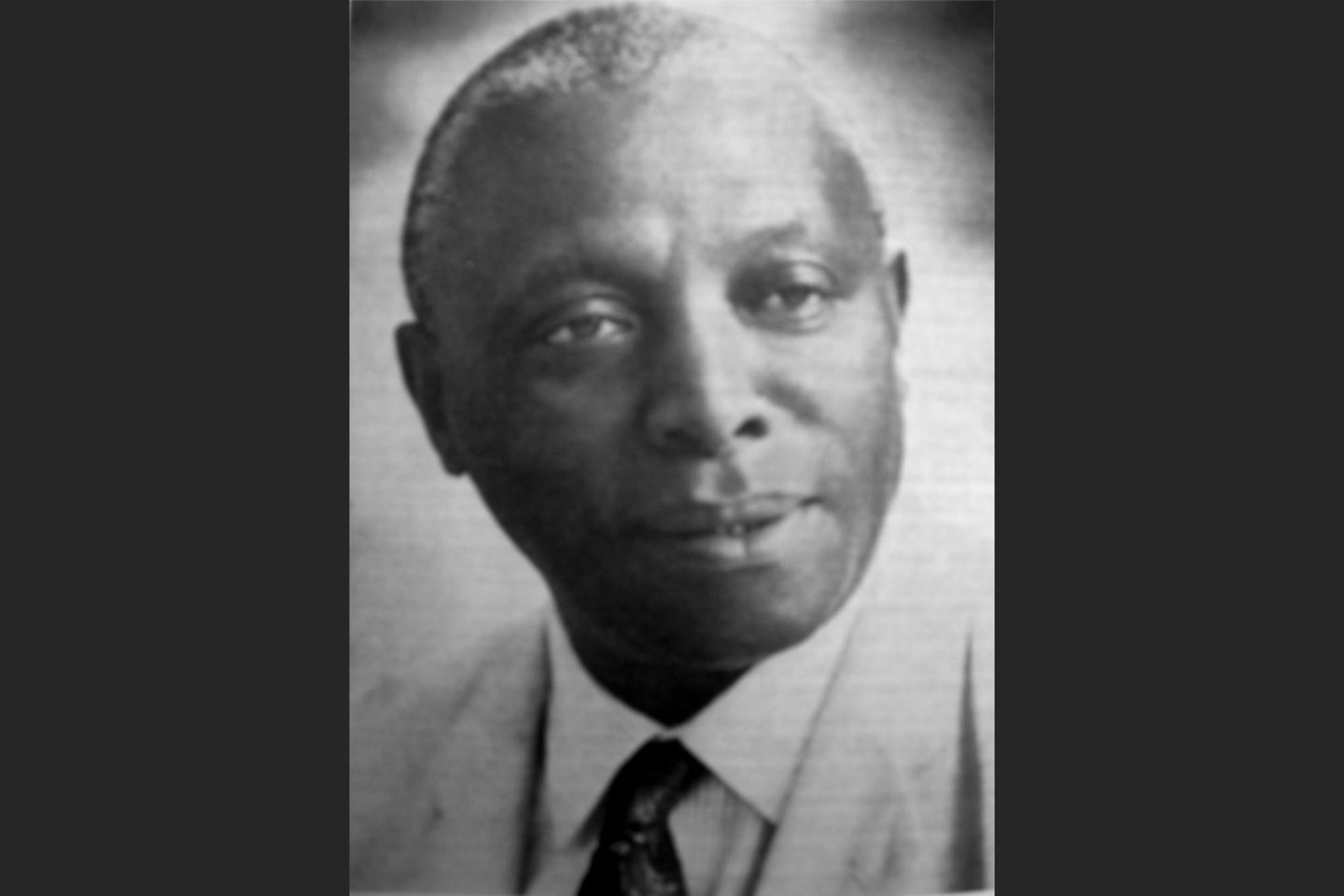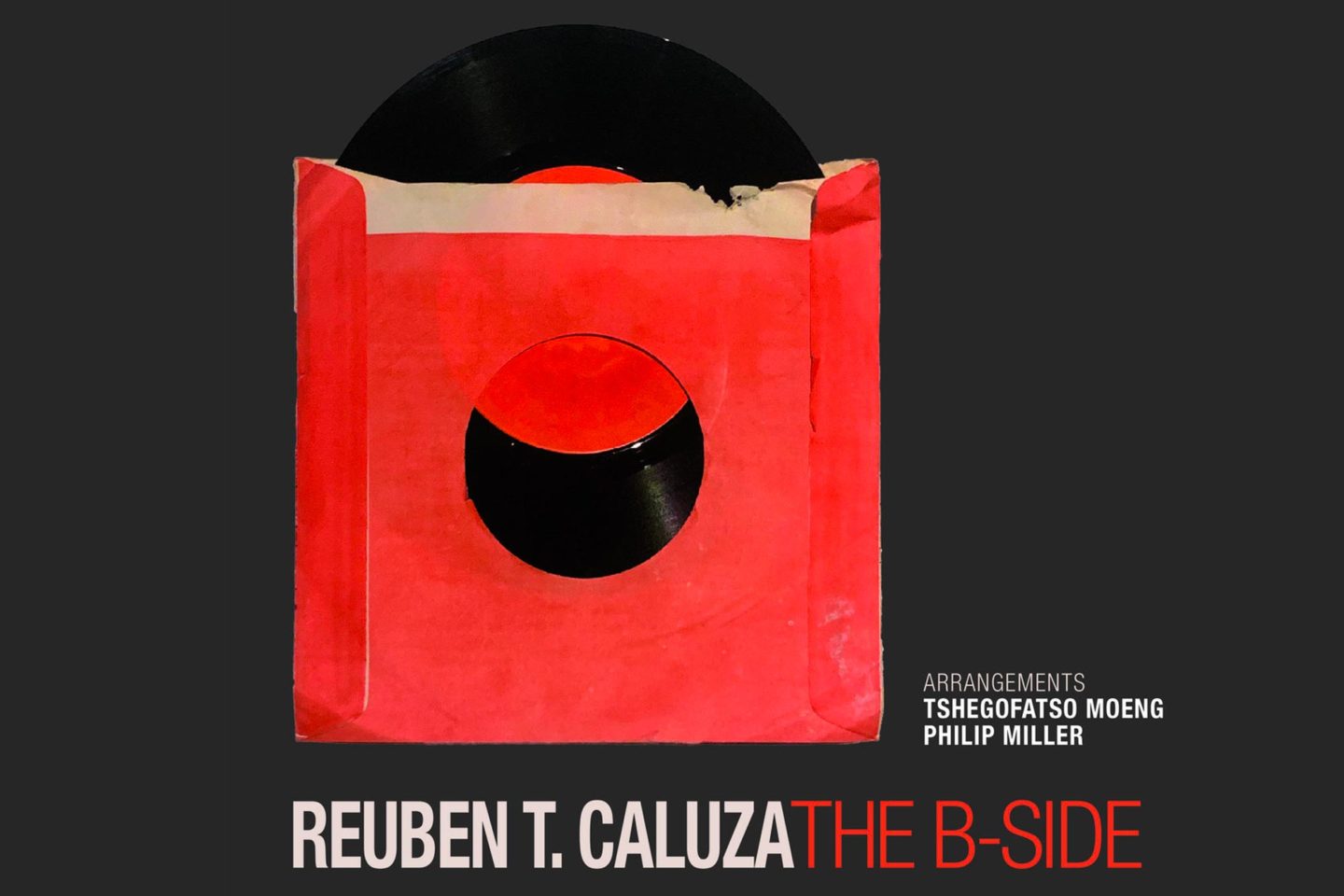A new take on the work of Caluza
Philip Miller and Tshegofatso Moeng inject new life into the 1930s recordings of the composer and choirmaster on Reuben T Caluza – The B-Side, showing how choral music can be reimagined.
Author:
26 October 2021

One pandemic intersected with another when composer Philip Miller came across the song Influenza/1918 by RT Caluza during the Covid-19 lockdown. Miller had not heard of the song, he said, nor had he known about Caluza’s work until he read about it in an article by Mark Gevisser. Curiosity led to research and eventually it became the germinal cell for the B-Side recording project.
Caluza’s work reflects the way artists over the centuries have mirrored the complexities of life and recorded historical events. Miller and young musician Tshegofatso Moeng follow this tradition in B-Side, but inject new life into the way choral music can be performed, received and reimagined.
Caluza mostly used his songs to raise funds for the Ohlange Institute school. Similarly, B-Side was recorded to raise funds for the young artists Miller has worked with previously, to lessen the financial hardships artists face in lockdown.
Brought back into the public imagination, the question emerges: Who is this Caluza being reimagined on the B-Side album?
Cultural historian Veit Erlmann’s work presents a detailed genealogy and biography of Caluza. He writes that Reuben Tholakele Caluza was born on 14 November 1895 near Edendale, outside Pietermaritzburg. Two of his uncles were organ players and Caluza picked up this skill, honing his musical abilities before developing as a composer and choir leader during his student years at the Ohlange Institute.

Musical versatility
At Ohlange, Caluza formed a vocal ensemble called the Royal Singers, which had a diverse repertoire. It included Negro spirituals, ragtime and traditional Zulu songs arranged for choral performance. Later, he took over the Ohlange Institute choir from a teacher at the school, Lingard Bophela, who later became a leading unionist.
While choir master, Caluza went on local and national tours, raising funds for the school. His musical versatility is reflected in his leadership of a fife and drum ensemble, and he took over the brass band John Langalibalele Dube had equipped with instruments from America, as anthropologist and music historian David Coplan writes.
Caluza composed his debut song at 17 years old. Umteto we Land Act (also known as Silusapo/iLand Act) went on to become the “unofficial” anthem of the newly formed South African Native National Congress, which later became the ANC. Incidentally, the Ohlange choir popularised Enoch Sontonga’s Nkosi Sikelel’ iAfrika during its tours, which was eventually inaugurated as the anthem of the ANC in 1925.
Some of Caluza’s early compositions at Ohlange include Umntakababa, Umantindane, Isangoma, Vulindlela MntakaDube, Influenza and Ixhegwana/iRickshaw. His music is unique and different from his contemporaries, as he leans more towards ragtime than typical hymn-derived songs. His work, particularly in compositions such as Bashuka Ndabazini and Vul’indlela Mntaka Dube, deeply reflect his admiration for Dube.
Harsh treatment of Black workers, general discrimination and social ills, especially rampant alcoholism and ideas of morality, are some of the themes embodied in Caluza’s music.
Formidable career
Caluza’s musical prowess eventually caught the attention of the recording industry, which led to The Gramophone Co’s His Master’s Voice label inviting him to record. In 1930, he assembled a double quartet, travelled to England and recorded a number of songs, most of which were his own compositions.
This was a major accomplishment, as the double quartet was the first Black choral group to feature on a record. Soon after, Caluza went to study music at Hampton College in the United States. On his return, he continued teaching and then moved into business.
Caluza was evidently moulded by leading activists such as Dube and Lingard Bopela. He later closely followed the ideas and teachings of Booker T Washington, and possibly also of WEB Du Bois, as the latter had corresponded with Dube while studying in New York. This might account for Caluza’s keen sense of politics.
In the early 1960s, he returned to academia with a short stint at the University of Zululand, teaching music to candidates training to be teachers. Caluza died in 1969 having had a formidable music career.

Reuben T Caluza – The B-Side is a digital album with 10 tracks from Caluza’s 1930 album with His Master’s Voice, including more “prominent” songs Influenza/1918, Umteto we Land Act, Ixhegwana/iRickshaw, Oxford Bags/uBhunca and Ingoduso.
The digital format of the album expands listeners’ engagement with the music through the addition of audiovisual material. The release offers a wide range of styles and ideas. Some songs, such as Influenza, remain close to Caluza’s original score and harmonies; the haunting poignancy is underscored by a soprano voice exploring higher registers. Others, such as Silusapo/iLand Act, are daring in their reframing.
A fitting homage
This is not an album enriching our nostalgia, but a homage to what Caluza bequeathed us. It is a creative, unflinching foray into the music. The rich and diverse use of texture, instrumental timbre and the voice enrich the listening experience in remarkable ways, supplemented by the accompanying audiovisual content.
Miller and Moeng say it was mostly the text that led them to their artistic choices. Sometimes the sombreness of the words led to the harmonic language and instrumental combinations that were used. Some songs are energetic and fun, though, such as Ixhegwana/iRickshaw. And others are identifiably love songs.
As a “traditional choralist”, I asked about the changes and rearrangements. Caluza’s original scores are available from the Southern African Music Rights Organisation (Samro) archives, say Miller and Moeng, for those who wish to stick to them. But their intention was different. Their aim was to add to and expand the country’s vocal heritage, to access and creatively open up Black intellectual and creative histories for those who may never have heard of Caluza and his heritage, education, artistry and more.
New possibilities
On Reuben T Caluza – The B-Side, not only have the collaborators reframed the original scores but also the typical “Black choral sound”, a point that requires much debate and research. Miller and Moeng point out that the singers come from varied genres: choral, opera and popular music, so they felt they did not have the capacity and neither felt the necessity to use a circumscribed sound. While initially troubling, the team’s superlative vision surpasses any initial misgivings.
The singers on this project participated creatively through new technology such as voice notes and in the artistic decisions, making this a democratic exercise. Miller and Moeng highlight the collaborative engagement of everyone involved, especially through WhatsApp, as singers were spread across the country and Covid-19 travel restrictions barred in-person collaborations. In a way, confinement made room for creative improvisation.
Related article:
Significantly, the rearranged scores for this project are also available from Samro, allowing for further circulation and performance of the reimagined Caluza songs. Archivally, this is also important primary data for musical analysis.
Reuben T Caluza – The B-Side is a work of great art, deep intellectual value, and local and global heritage. One hopes as listeners enjoy, mull over and even analyse the music in the album, they will also excavate Caluza and delve into his life as one of the early Black Intellectuals who actively participated in framing and shaping Black progress both in South Africa and abroad.
Vocal collaborators
Sopranos: Ann Masina and Nokuthula Simphiwe Grace
Altos: Lydia Manyama and Mapule Moloi
Tenors: Lulama Mgceleza and Tshegofatso Moeng
Baritones: Lindokuhle Thabethe, Bulelani Madondile and Zebulon Mmusi
Bass baritone: Ayanda Eleki
Bass line: Lubabalo Velebayi and Reuben Mbonambi

